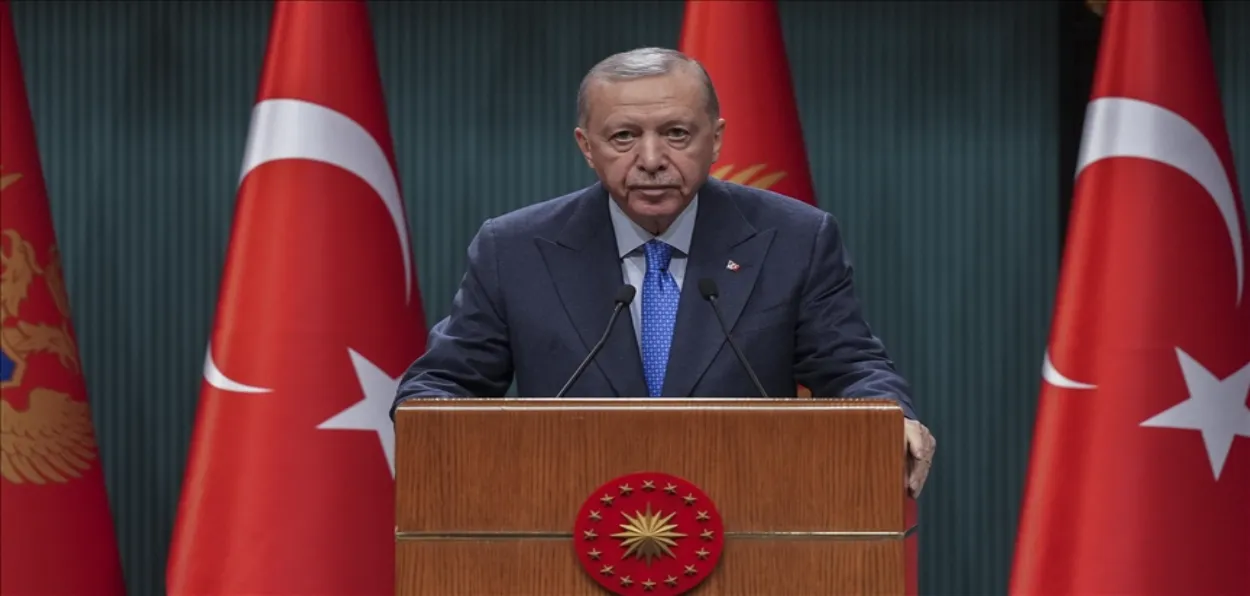
Aditi Bhaduri
As usually happens, the overthrow of the Bashar Al Assad regime in Syria is seeing a jostling between regional powers for influence in that country. The Assads had always prided themselves on their pan-Arabism. Ironically, the powers jostling for influence there are all non-Arab ones: Israel, Turkiye, and Iran. Of these Turkiye is in a more dominant position given its proximity and support to the Syrian rebels.
Behind The News
Turkiye has long been aiding the Syrian rebels; most of the foreign fighters who crossed over into Syria to join the rebels, including ISIS, have gone through the Turkish-Syrian border. It is also widely believed that the current rebel offensive would not have been possible without tacit Turkish approval. In the northwestern regions of Syria, which have been held by the rebels since the civil war began in 2012, both the Syrian revolutionary flag and the Turkish flags fly, and the Turkish lira is widely used. Soon after Damascus fell to rebel forces, Turkiye reopened its embassy in Damascus.
Even though Turkish President Recep Tayyip Erdogan has spoken out against any attempts to divide Syria, Turkiye itself may move deeper into Syria, even if by pushing for a bigger buffer zone between its borders and Syria.
Soon after the rebel takeover of Syria, Erdoğan stated that Türkiye's sole aim is to ensure peace, tranquility, and stability throughout its region, starting with Syria, and “We're delighted whenever we see the free Syrian flag alongside our own crescent and star flag in (the Syrian cities of) Aleppo, Damascus, Hama, Homs, Daraa, and Manbij.”
Turkiye may also use some of these rebel groups as leverage to achieve its strategic objectives in the region. Earlier this year, Erdoğan underscored that the recent developments in Syria show that Ankara's foreign policy is effective, stressing the need for EU cooperation on counterterrorism and Syria's reconstruction.
The only Arab power to wield any real influence would be Qatar though the first foreign visit of the new Syrian foreign minister has been to Saudi Arabia.
Qatar is a top backer of rebels who fought Assad. It together with Saudi Arabia, Turkiye, and Western nations has participated in a military aid programme overseen by the U.S. Central Intelligence Agency that provides moderate groups with arms and training.
In earlier stages of the Syrian conflict, both Qatar and Turkiye were in very close alignment and coordinated their policies in support of regime change.
In 2014, PBS did a documentary on how Syrian rebel fighters were traveling to Turkiye where they met with American handlers and then traveled to Qatar to undergo military training.
Qatar was the only Arab country that refused to reconcile with Bashar Al Assad and recognize his regime as Syria’s legitimate government, even when other Arab Gulf states did so, after initially backing anti-Assad rebels. Qatar did not re-establish diplomatic relations with Assad-ruled Syria, was against the country's re-induction into the Arab League last year, and, along with Turkiye , continued to back some of these rebel groups.
A day after rebel groups seized Syria, Qatar announced that it had established communications with the Hay'at Tahrir as Sham (HTS), which spearheaded the rebel assault last November.
Once Damascus fell to the rebels, Turkiye and Qatar quickly engaged with the HTS. Qatar also re-opened its diplomatic office in Damascus after its closure in 2011. A Qatari delegation headed by Minister of State at the Foreign Ministry Mohammed bin Abdulaziz al-Khulaifi visited Damascus for the first time in 13 years.
For Turkiye, Syria is important not only for its ambitious goal of being the regional energy hub but also for realizing President Erdogan's dream of creating a neo-Ottoman Caliphate. Syria is important also for neutralizing the Kurdish threat to it.
Turkish Foreign Minister Hakan Fidan has announced that clearing the Syrian territory of terrorism will be Türkiye's main priority in 2025. All these point to Turkish long-term plans to remain engaged with Damascus. Its Defence Minister Yaşar Güler has already offered Damascus military support.
Turkish companies are also looking forward to profit from Syria's reconstruction which is estimated at almost 500 billion dollars. It has appealed to the international community for help with such a massive sum. Here, the role of Qatar will get important. Turkiye and Qatar have close military and economic ties, with Qatar providing Turkiye with substantial economic support in recent years, while Turkiye played a major role in alleviating Qatar's trade and connectivity challenges when it was placed under a blockade by Saudi Arabia, the UAE, Egypt, and Bahrain in 2017. While the countries have reconciled since a covert competition for influence in the region continues.
Qatar will also want to leverage its strategic win in Syria to project power and influence in the region, especially since it has been on the back foot since 7 October 2023, for its support of Hamas.
Qatar and Turkiye are also ideologically closely aligned, in their support of the Muslim Brotherhood ideology and Sunni Islamist orientation. This gives them an upper hand over the other actors jostling for power in Syria- Israel and Iran. Syria is a majority Sunni country, though with many religious minorities living alongside. Yet all rebel groups have an Islamist component, with almost no secular group. The interim government has said that elections can be held not before four years. That is a long way away.
ALSO READ: Remembering Bethlehem and its religious harmony on Christmas
India will need to calibrate its response to Syria very carefully. While it has close relations with Qatar, with Turkiye its relations are strained. For India, it should for now just be to watch and wait.
